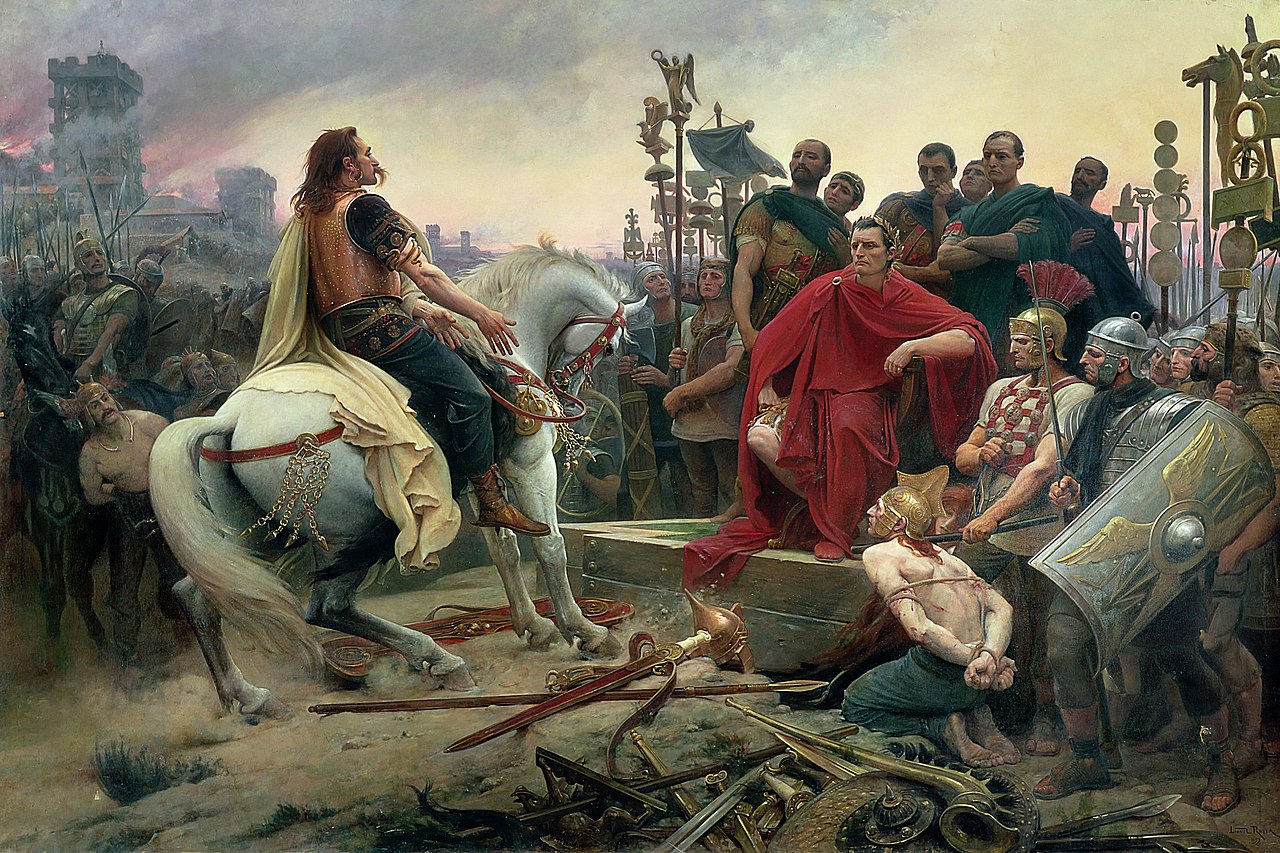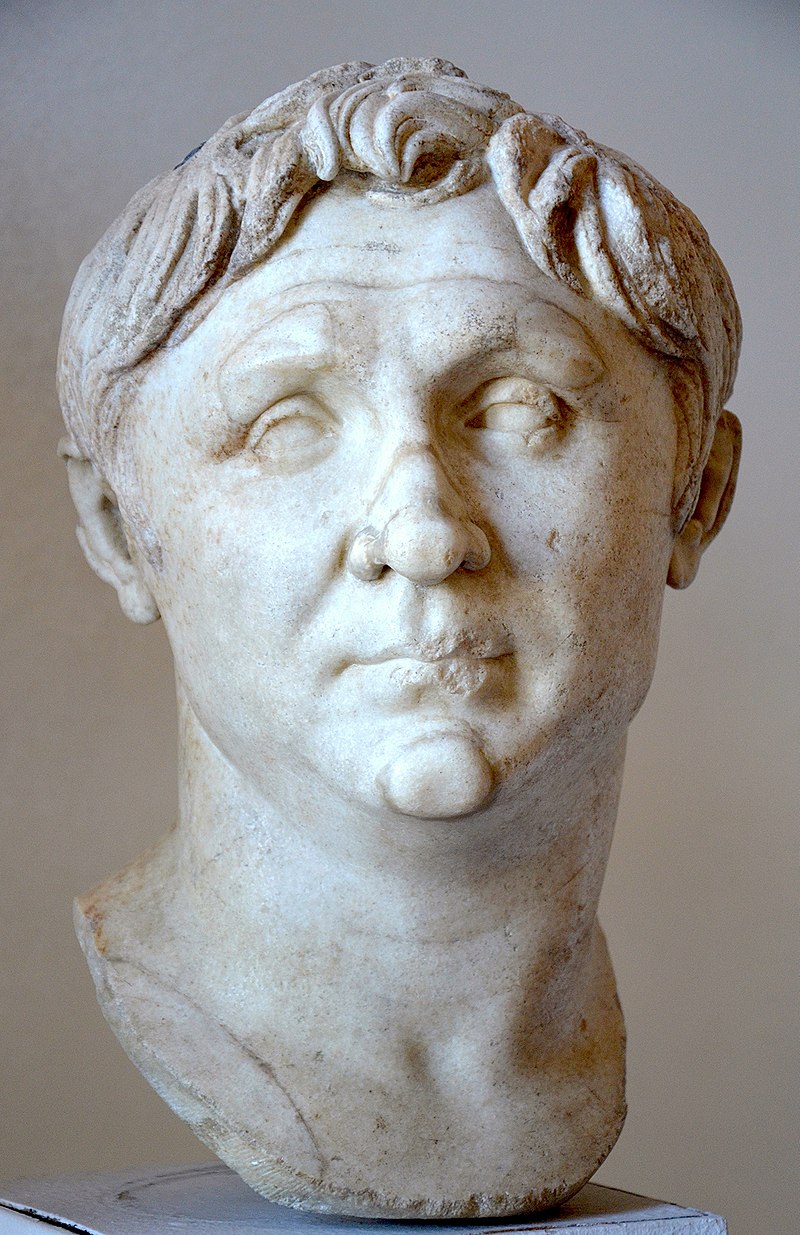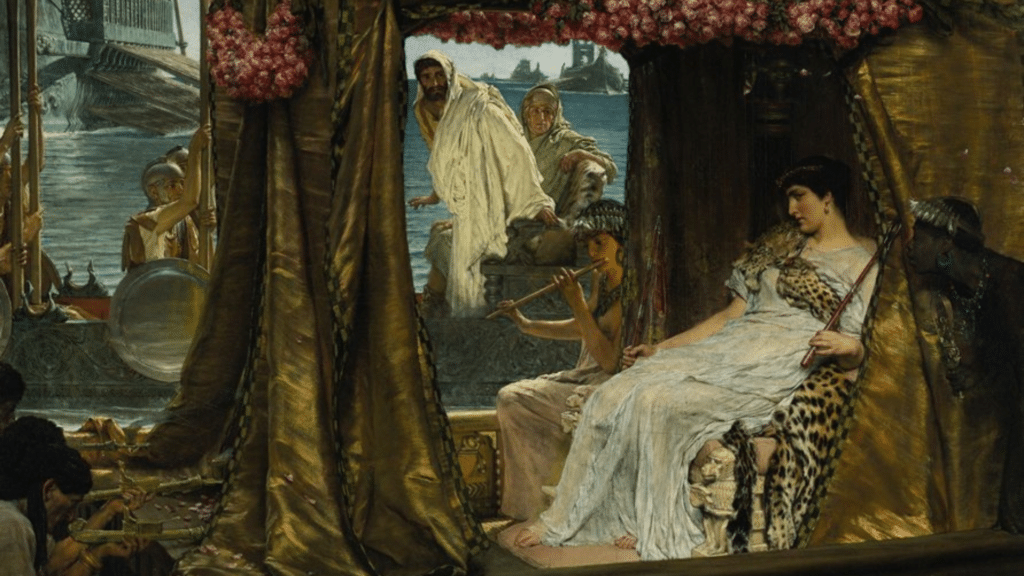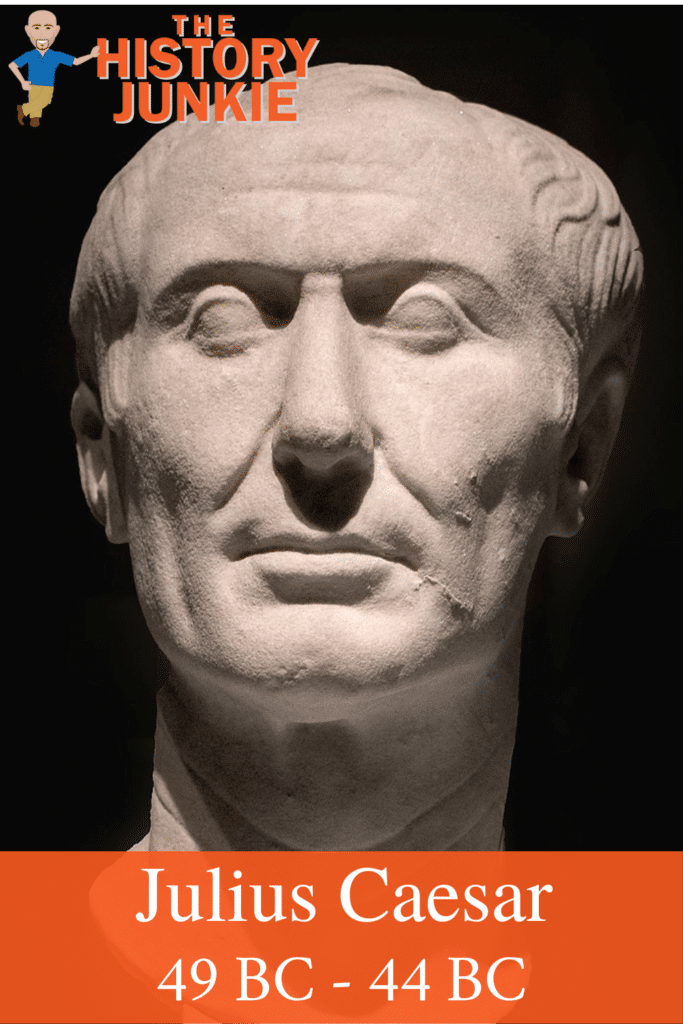
Jump to:
#1. Julius Caesar's Defeat Of The Gauls During The Gallic War
Though the Gallic tribes were just as strong as the Romans militarily, the internal division among the Gauls guaranteed an easy victory for Julius Caesar.
Vercingetorix's attempt in 52 BC to unite them against the Roman invasion came too late. He proved an astute commander, defeating Caesar at the Battle of Gergovia, but Caesar's elaborate siege works at the Battle of Alesia finally forced his surrender.
Despite scattered outbreaks of warfare the following year, Gaul was effectively conquered.
Plutarch claimed that during the Gallic Wars, the army had fought against three million men, subjugated 300 tribes, and destroyed 800 cities.
The casualty figures are widely disputed.

#2. Caesar's Defiance of the Senate
After his victory over the Gauls, Julius Caesar was ordered by the Senate to step down as commander and return to Rome.
This was an order he ignored.
Instead, he turned his army toward Rome and began to march to the Senate. This sparked a civil war against his rival, Pompeius Magnus, who was supported by the Senate.
Pompey had once been supportive of Julius, but from 52 - 49 BC, their relationship had eroded.
In 51 BC, the consul Marcellus proposed recalling Caesar, arguing that his provincia (here meaning "task") - due to his victory - in Gaul was complete; the proposal was vetoed.
That year, it seemed that the conservatives around Cato in the Senate would seek to enlist Pompey to force Caesar to return from Gaul without honors or a second consulship.
Pompey, however, at the time intended to go to Spain; Cato, Bibulus, and their allies, however, were successful in winning Pompey over to take a hard line against Caesar's continued command.
#3 His Popularity With The People
There are many criticisms of Julius Caesar and his authoritarian ways, but one cannot dispute his popularity among the people.
His success in Gaul and Britain had garnered him much praise and support from the common people. The elite class tended not to like him since he was forcing change to an institution that had served the country well for 500 years.
His popularity among the people threatened those in the Senate who wanted to maintain power. It was his popularity with them that made it possible for his march to Rome.
#4. His Popularity Among His Men
The demise of the greatest leaders in history is when they lose the faith of their men. Julius Caesar's men never doubted him; despite his losing the Battle of Gergovia, he recovered quickly and applied more pressure by way of siege.
They had fought and bled with him and were loyal to him. Whatever order he gave, they would follow and were honored to do so.
When it came time for him to step down, his men did not want him to relinquish power. It was their loyalty that made his ascension to dictator possible.
#5. The Defeat Of Pompey

At the beginning of 49 BC, Caesar crossed the Rubicon with a single legion, the Legio XIII Gemina, and ignited civil war.
Pompey and many senators fled south, believing that Caesar was marching quickly for Rome. Caesar, after capturing communication routes to Rome, paused and opened negotiations, but they fell apart amid mutual distrust.
Caesar responded by advancing south, seeking to capture Pompey to force a conference.
Pompey managed to escape Italy from Brundisium before Caesar could capture him. Heading for Hispania, Caesar left Italy under the control of Mark Antony.
After an astonishing 27-day march, Caesar defeated Pompey's lieutenants, then returned east to challenge Pompey in Illyria, where, on July 10, 48 BC, in the battle of Dyrrhachium, Caesar barely avoided a catastrophic defeat.
In a short engagement later that year, he decisively defeated Pompey at Pharsalus, Greece, on August 9, 48 BC.
Caesar then pursued Pompey to Egypt, arriving soon after the murder of the general. There, Caesar was presented with Pompey's severed head and seal ring, receiving these with tears.
He then had Pompey's assassins put to death.
#6. Installed Cleopatra As Ruler Of Egypt

After defeating Pompey, Julius Caesar became involved in the Egyptian Civil War and threw his support behind Cleopatra.
Some suggest the reason he got involved in this matter was due to the Pharoah's role in the death of Pompey.
He withstood the Siege of Alexandria, and later, he defeated the pharaoh's forces at the Battle of the Nile in 47 BC, installing Cleopatra as ruler. Caesar and Cleopatra celebrated their victory with a triumphal procession on the Nile in the spring of 47 BC.
She would remain the ruler over Egypt until Caesar Augustus defeated her army in 30 BC.
#7. He Created The Julian Calendar

The Julian calendar, proposed by Julius Caesar in 46 BC, was a reform of the Roman calendar. It took effect on 1 January 45 BC by edict.
It was designed with the aid of Greek mathematicians and astronomers such as the Sosigenes of Alexandria.
The calendar became the predominant calendar in the Roman Empire and subsequently most of the Western world for more than 1,600 years until 1582, when Pope Gregory XIII promulgated a minor modification to reduce the average length of the year from 365.25 days to 365.2425 days and thus corrected the Julian calendar's drift against the solar year.
Worldwide adoption of this revised calendar, which became known as the Gregorian calendar, took place over the subsequent centuries, first in Catholic countries and subsequently in Protestant countries of the Western Christian world.
The Julian calendar is still used in parts of the Eastern Orthodox Church and in parts of Oriental Orthodoxy, as well as by the Berbers.
Conclusion
It is hard to sum up Julius Caesar's accomplishments with 7 points.
He set the stage for the Roman Empire to begin and for Jesus to come to earth, thus fulfilling several prophecies. Julius Caesar's name is not mentioned in the New Testament, but his actions were certainly guided by the hand of God.
After his assassination, many were surprised that he had named Octavian to be his successor instead of Marc Antony.
Octavian would prove to be one of the greatest leaders in world history and would build on the reforms that Caesar had put into place.
